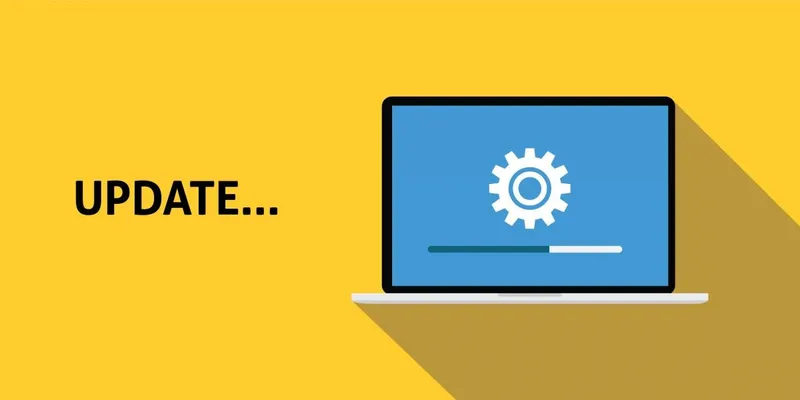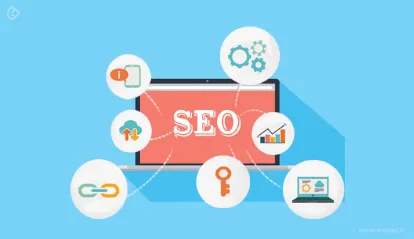

Mobile App vs Website: Which is better for your Start-up?
As India is going digital, all businesses and start-ups are busy making their websites and mobile Apps. But, the question is which one will make your business thrive? The general idea is that everyone in the coming era will have an android mobile than laptops or other gadgets. Besides mobile apps are the latest things. So far, the mobile apps get created only after the website has been launched, but is this the best decision for your venture?
But should it be the only thing you begin with? Especially if one doesn't have the budget to launch both? Does that mean the web is dead? Moreover, having a mobile does not simply translate into downloading mobile applications. So, how to outshine your competitors on the web? Through a mobile App vs through the website? There are many pros and cons involved in both.
It’s highly crucial that you choose the right platform for your start-up.
The answer is, of course, chosen according to your requirements and the type of customers you want to pull into your business. Therefore, before you choose, it is important that you take a look at the importance of a mobile-friendly website and App.
Going through this guide will give you the answer to the question – What should I build first – Mobile App vs Website?
Budget

The first thing after getting your Company Registration completed is how much budget you have, to go online. Moreover, you will need to set aside at least some amount to keep the online option updated. Most Web Designing and Development Companies will recommend that you develop a website first and a mobile App later as it is a cheaper option. You will get the benefit of displaying all the content on one interface on a website. Besides, updating the content requires less work, in case of a mobile app vs a website.
Furthermore, the User Interface of an App has to be adjusted for each platform like Android, Windows and iOS App. An App-only business model may have issues reaching out to consumers across all platforms. It implies that you will need to spend more on developing different apps for different platforms. It will your cost per operating system.
If you have opened up your company with a limited amount, it wouldn’t make sense to start developing a mobile App.
Product Line

Does your product involve navigation, GPS or location-based elements?
An easy example to use here would be Ola or Uber. Such kinds of start-ups must have a mobile app vs having a website. Their business connects passengers with taxi or cab drivers willing to drop them to their destination.
Similarly, say, you plan to build an app for people to track their route or an app facilitating the runners map the distance covered and steps taken. Then you can only achieve to provide your clients with the best possible experience with a mobile app. Because GPS is the lifeline for your business.
Similarly, a railway or flight booking business needs an App to make it accessible from wherever. If you are into developing Android or even online games, notes, to-do lists, reminders, alarm clock, e-mail or social media. Then mobile apps engage and interact with users in the best way possible.
The success of any business can only be achieved by understanding the needs of your audience and target market first. Does your customer need your services on a daily or hourly basis? For any Social Media platform need of an app is a must.
Tools Required

Are you introducing something complex? Would you need to show data reports or analysis etc.?
If your consumer will need complex reporting, calculations, numbers. It, generally, is almost impossible to use these tools on a mobile app.
Except, of course, if you have launched native apps to cater to all platforms.
So in this case of Mobile App vs website, the website is a clear winner. Because of its optimized user interface which displays all the data.
Marketing Plan

If your business is about investments and loans, a mobile App is a clear winner. It is especially recommended from a marketing point of view.
In the beginning, all businesses only have limited resources to work with. In such cases, an app may make for an obvious choice to help reach out to a certain section of Indian consumers. As the business grows, you can provide additional platforms.
Still, if a company opting to go app-only, it risks missing out on a wide market of potential customers. Particularly if their app does not happen to feature amongst the top four or five apps of choice for a user.
A famous example is of Myntra, India’s largest fashion e-commerce marketplace. A few years ago, it announced its plan to go app-only. The company said this move was meant to improve personalization. Of course, the loyal users of Myntra were forced to download the App. This strategy was adopted to push out the competition. As customers would be more captive in a specific environment and shopping around for discounts would lessen.
But, contrary to their belief, the move only backfired. Within a year, Myntra was forced to launch its mobile website again.
User-Friendly

Most of the websites have a navigational user interface. But mobile apps need to have an interactive user interface, to be a success. The mobile app has a clear edge with a better mechanical phenomenon. Again the instance of Game comes to mind. A mobile app will be better for a game development company vs a website.
A responsive web design approach addresses, as well as, resolves much of the usability issues for a mobile-friendly website.
So, you should consider the need for your business.
Frequency of Usage

Would your targeted customers need to access your business services on a daily or hourly basis?
If you expect your users to check into your platform a few times a day, then it makes more sense to start with an app. It is far more convenient, faster to access, and it has the option of notifications for the users to keep updated.
But you must make sure that your app is not slow to launch or perform the desired actions. This will become a barrier that stops people from using your app.
Speed Matters

Those who’ll use them pretty often during the day would like to have their interaction to be lag-free.
Nobody will be ready to wait even 1 minute to play games during his (or her) 15-minute metro ride – wanting to play them ASAP. No one has the time to explore over a slow platform for their needs.
Imagine if you always had to access LinkedIn through your browser first. Then having to sign in. And finally being able to read that message of the newly vacant position. Wouldn’t it be better to get an instant notification as promptly as you receive the message?
But if you are targeting customers who would not be frequently accessing. Then installing a mobile app will be more time-taking vs visiting a website.
Accessibility

Accessibility to the internet is still a major problem for many parts of India. So, examine well for how long a customer can need your services.
For offline accessibility, you need to build parallel, location-dependent apps. Therefore, apps will be more required for offline mode of navigation than a website. If you think that your Company Registration would serve mostly to users who are offline-then it is much better to develop an app where the user can access your services whenever it’s needed. For example, dictionaries provide accessibility to know words even where an internet connection is not available. Users can use it whenever they need, whatever location they are in.
Updating the App

Do you think your App will need improving or updating frequently? Do you think you'll need to update your data quite often? Would you need to continually change the content or the data on your business platform?
If yes, you should definitely get your website developed first. Later, once the business has been streamlined, you can invest in apps.
This is the reason why experts recommend most of the banks, news, and hospitality industry a website. This can be easily updated through a website and your users will not be forced to update the whole application. All the changes will be done from your end on your website.
What about the Competition

Does your competitor have a mobile app vs website?
This can become the Unique Selling Proposition (USP) of your business. If everyone else is focusing on website platforms or delivering an average solution for each platform available. It might prove to be fruitful for you to focus on a mobile app. Gaining you much ground in the race.
Or you can make it exclusive. That would appeal to the person with the mobile phone in his hand. For example, if your competition has a to-do list app for desktop, tablet, and smartphone. You can just focus on giving the best possible experience for iOS devices. Maybe you can add features that post insights along with the meeting schedule.
Analytical Tools

SEO or Search Engine Optimization is possible only for websites. To touch users or the wider population you always have to keep studying the latest SEO trends. If you choose a mobile app you can’t keep updated on the constant revision of your website. It would mean you missing a big chunk of search engine traffic.
If you have such a business that depends on consumers search and reviews on app stores then mobile apps can be an advantage for you.
Mobile App Vs Website: Final Notes

So what should you choose first? Mobile App Vs Website?
Many companies and entrepreneurs may want to develop a mobile app first. It is a much more advanced and up way to connect with users. But it may prove to be a huge mistake.
Unless you are a mobile-based start-up, developing a website first, is the way to go. Instead of spending some significant part of your budget in developing an app. You can, instead, try on making your website more user-friendly. Or pay extra to make it rank prominently on the Search Engines.
The conclusion is that there are many points that you must analyse carefully before you select whether you should build apps or websites first.
Between the Mobile App vs Website, it’s hard to pick a clear winner.
It all depends on you and your business model. With this article, we have all the pros and cons. These you will have to weigh by yourself.
This article has been contributed by Reema. A content writer with LegalRaasta. An online portal assisting companies and start-ups with all services related to legal, finance/funding and accounts.



